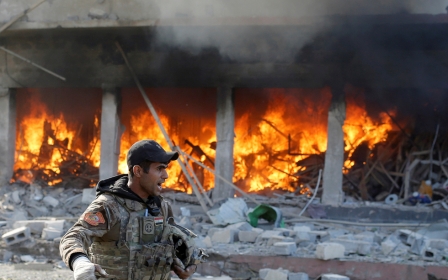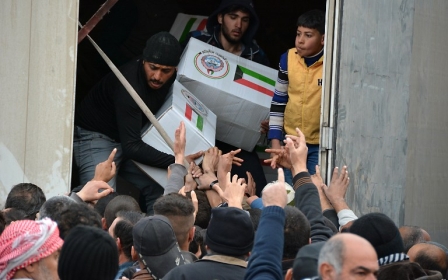Battle for Mosul: Last bridge in divided city out of action after US-led strike

An air strike has disabled the last bridge linking eastern and western Mosul, as Iraqi forces continue their offensive to retake the city from militants, residents and a provincial official said on Wednesday.
Iraqi forces have advanced into eastern Mosul - which is divided by the Tigris River - and have retaken some neighbourhoods on that side of the city, which has been held by the Islamic State group for more than two and a half years.
But the western part of Mosul, the last Iraqi city where IS holds significant territory, remains in the hands of the militants.
"Aerial bombing... cut the bridge, and it is not possible to cross it," Mosul resident Abu Ali told AFP.
Abu Ali said he had crossed the river on Wednesday in a boat – this is now the only way to cross as other bridges have already been put out of action.
The bridge was the oldest in the city – local news channel al-Rafidain published footage claiming to show a large chunk of the bridge lying in the water close to the eastern banks of the Tigris River.
Another Mosul resident, who did not want to be identified by name, said a strike had cut the bridge.
An official from Nineveh province, of which Mosul is the capital, confirmed the news.
"Al-Atiq bridge was targeted by an air strike," said Hashim Briskani, the deputy head of the Nineveh province security committee.
Briskani said the air strike had left the bridge completely out of use. It had been the last bridge connecting east and west Mosul, he added.
Abu Ali and Briskani both reported the strike on Tuesday, while the US-led coalition carrying out air strikes against IS said it had "disabled a bridge" in the Mosul area a day earlier.
IS overran large areas north and west of Baghdad in 2014, but Iraqi forces backed by US-led air strikes have since regained much of the territory they lost.
New MEE newsletter: Jerusalem Dispatch
Sign up to get the latest insights and analysis on Israel-Palestine, alongside Turkey Unpacked and other MEE newsletters
Middle East Eye delivers independent and unrivalled coverage and analysis of the Middle East, North Africa and beyond. To learn more about republishing this content and the associated fees, please fill out this form. More about MEE can be found here.




